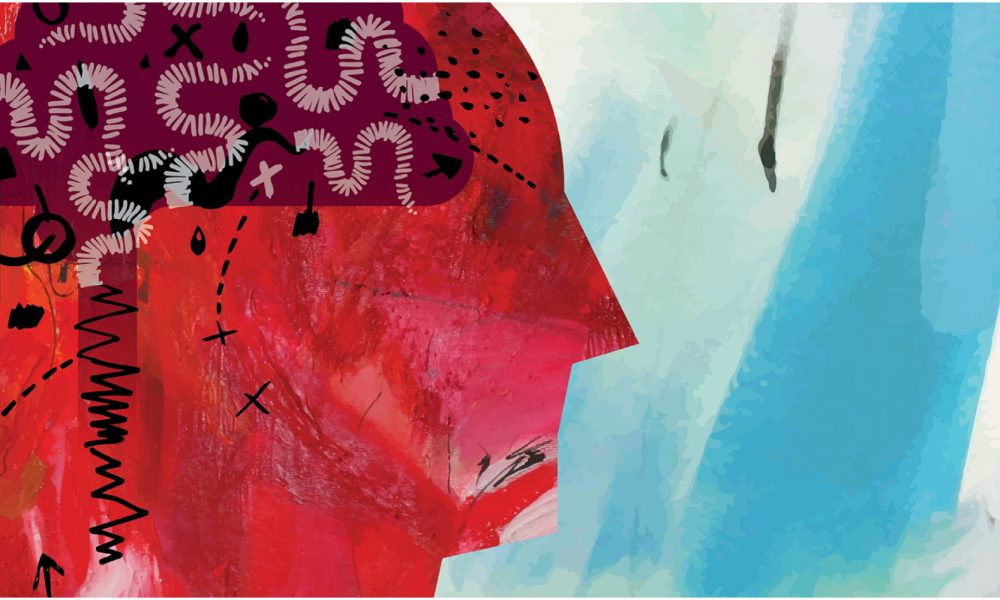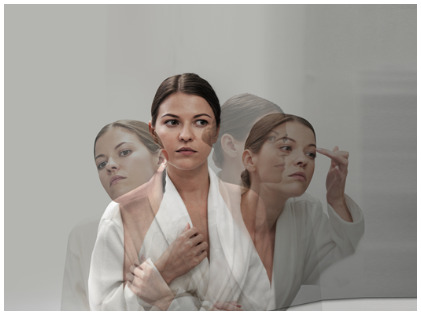
These Habits and Behaviors Are Linked to Anxiety-Related Disorders

We all have an experience or two (or many more) with the nasty thing that is anxiety. When you find yourself all jittery and restless and your muscles all stiffen, your heart rate quickens and an odd feeling washes over you — it’s not fun, but it is normal. Can you imagine what sort of trouble you would land yourself in if you didn’t have the natural response of anxiety to warn you of things like dark alleys or suspicious people?
And maybe you wouldn’t put such an effort in your work if you weren’t anxious about meeting the deadline, or perhaps you wouldn’t have written such a great speech if you weren’t anxious about the audiences’ response! Anxiety is a good thing in some ways, but there are times when it poses an obstacle, too.
When Anxiety Becomes An Enemy
It’s when anxiety comes to affect our daily life and disables us from functioning normally in daily activities that it becomes a serious problem. Sometimes anxiety gets ahead of people and it can seriously have negative effects on a person’s health, work, and even relationships. Being in a state of continuous worry is a sort of plague. Anxiety-related responses can crop up in some unusual ways that you may not even really identify as anything to do with your emotions. Here we take a look at three psychological disorders where continuous anxiety could be stemming from.
Selective Mutism
Selective mutism is when a person experiences consistent failure to speak in particular situations while being completely able to in every other situation. A perfect example is the character Raj in the popular show The Big Bang Theory, as he has no problem communicating in every situation except when he has to speak to women. This is a disorder commonly presented in childhood — it is rather rare in adults but it does occur. This is commonly treated using Cognitive Behavioral Therapy to change a person’s thought patterns and behaviors.
Body Dysmorphic Disorder
While you may have danced to his hit songs and read the controversial stories around him, you may now have known that the King of Pop himself showed many symptoms of a disorder called body dysmorphic disorder. Michael Jackson was very preoccupied with his appearance and invested a lot of time, effort, and money into changing his appearance. There are many others in the world with the same behavior, and it can interfere with social life, confidence, and self-esteem. Seven to fifteen percent of those who undergo cosmetic procedures happen to be BDD sufferers. Surgery is not a solution to the problem, and people don’t often realize they are struggling with a disorder. Medications and psychotherapy help to break this vicious cycle and to identify and remedy the root causes of the anxiety in BDD.
Trichotillomania
 This may be a tough word to pronounce, but it’s also a tough disorder to recognize. This is a type of disorder characterized by the overwhelming compulsion to pull out hair from different parts of the body, like the eyelashes, eyebrows, and scalp. Pulling usually follows a bout of tension that builds up, and this tension builds when the person avoids pulling as well. Pulling usually brings immense relief and a sense of pleasure. Of course, over time this will lead to noticeable hair loss, and perhaps embarrassing situations and can interfere with normal life. One to three percent of the general population suffers from this, including celebrities like Colin Farrell, Olivia Munn, and Justin Timberlake! It is viewed as a stress-coping mechanism and to stem from feelings of loneliness, stress or frustration. Habit reversal therapy is used, often with medication, to treat this condition. Self-monitoring and emotion awareness, as well as stimulus control, are other techniques used to help break the cycle of hair-pulling and to put an end to the habit.
This may be a tough word to pronounce, but it’s also a tough disorder to recognize. This is a type of disorder characterized by the overwhelming compulsion to pull out hair from different parts of the body, like the eyelashes, eyebrows, and scalp. Pulling usually follows a bout of tension that builds up, and this tension builds when the person avoids pulling as well. Pulling usually brings immense relief and a sense of pleasure. Of course, over time this will lead to noticeable hair loss, and perhaps embarrassing situations and can interfere with normal life. One to three percent of the general population suffers from this, including celebrities like Colin Farrell, Olivia Munn, and Justin Timberlake! It is viewed as a stress-coping mechanism and to stem from feelings of loneliness, stress or frustration. Habit reversal therapy is used, often with medication, to treat this condition. Self-monitoring and emotion awareness, as well as stimulus control, are other techniques used to help break the cycle of hair-pulling and to put an end to the habit.
These disorders are rare but can be immensely disruptive if you do suffer from them. If you do identify an underlying issue that you may be battling, it is best to seek professional help to address the sources that are fuelling your disorder. These little known anxiety disorders are treatable and finding the treatment as soon as possible will help you live a more rewarding, fulfilling and enjoyable life. Reclaim your life, and fight your demons, one step at a time!
More in Relaxation
-
`
Jennifer Aniston’s Timeless Tips for Health and Youthfulness
Iconic Hollywood actress Jennifer Aniston has long been admired for her acting prowess and seemingly ageless beauty and vitality. Now in...
November 22, 2023 -
`
Unleash Your Entrepreneurial Drive: 5 Strategies for Self-Motivation
5. Have an Undying Passion Passion is the driving force behind the world’s most successful entrepreneurs. Self-motivation becomes second nature when...
November 19, 2023 -
`
How to Go Vegan – The Right Way!
The vegan lifestyle has seen a significant surge in popularity lately, and rightly so. Embracing veganism not only fosters personal health...
November 12, 2023 -
`
7 Eye-Opening Reasons to Drink More Water
Water is frequently hailed as the quintessential elixir for life, and rightfully so. Constituting approximately 60% of our total body weight,...
November 1, 2023 -
`
Drake’s Workout Regimen: How the Canadian Rapper Stays Fit
The lights dim, the stage is set, and the crowd’s anticipation is palpable. When the beat drops, there is one Canadian...
October 24, 2023 -
`
Why Six-Figure Family Holidays Are Becoming the New Normal
In the panoramic landscape of the modern travel scene, a particularly glittering trend is emerging, akin to finding a diamond the...
October 21, 2023 -
`
Foods With High Water Content
Water is the elixir of life, and staying adequately hydrated is crucial for maintaining our health and well-being. While sipping on...
October 15, 2023 -
`
The Impact of Wearable Technologies in Health Research
In recent years, wearable technologies have emerged as a powerful tool in health research, revolutionizing how we collect and analyze data...
October 3, 2023 -
`
How Celebrities Stay Fit? Secrets of Chris Pratt, Jennifer Lopez & More
The glitz and glamor of Hollywood may make it seem impossible for celebrities to maintain an enviable physique. But it is...
September 29, 2023

















You must be logged in to post a comment Login